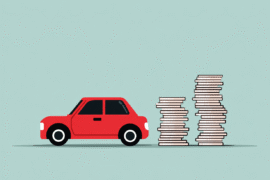This article may contain references to products or services from one or more of our advertisers or partners. We may receive compensation when you click on links to those products or services. Nonetheless, our opinions are our own.
The information presented in this article is accurate to the best of our knowledge at the time of publication. However, information is subject to change, and no guarantees are made about the continued accuracy or completeness of this content after its publication date.
- Understanding the Basics of Credit Consolidation
- Understanding How Credit Consolidation Affects Your Credit Score
- Navigating the Process of Credit Consolidation
- Comparing Credit Consolidation and Other Money Solutions
- Practical Steps to Find Your Best Debt Consolidation Choice
- Frequently Asked Questions
- Recommended Reads
Understanding the Basics of Credit Consolidation
Credit consolidation is a way to simplify several debts into one easy payment. You usually get a new loan to pay off all your debts when you consolidate. This allows you to focus on paying just one amount instead of several. This can be especially good if your current debts have high interest rates. By consolidating, you might get a lower rate, saving you money on interest over time.
Here are a few usual ways to combine credit:
- Personal Loan: You can get a bank or credit union loan to help pay your debts.
- Balance Transfer Credit Card: Transfer high-interest debt to a card with a lower interest rate or a special offer.
- Debt Management Plan: Work with a credit counselor to create a plan for paying back your debts.
Exploring the Benefits of Consolidating Your Debt
Imagine freeing yourself from the struggle of managing many payments every month. Combining your debt can be a great way to help you feel better about your money. You can make your life simpler by bringing your debts together into one loan or line of credit. This makes it easier to budget. Plus, it often comes with lower interest rates. This means more of your payment goes to lowering the amount you owe instead of paying interest.
Here are some key benefits you might experience:
- Lower Monthly Payments: Consolidation can lower your monthly payments, which can help reduce financial stress.
- Improved Credit Score: Focusing on one payment may lead to better payment habits, which could improve your credit score over time.
- Easier Management: With all your debts together, tracking deadlines and managing payments is more effortless.
- Chance for Lower Interest Rates: Many consolidation loans come with lower rates than you pay on credit cards.
Choosing the Best Consolidation Options for You
When finding the best credit consolidation options, match your choice to your specific money situation. First, look at your current debts. Group them by interest rates and how much you pay each month. This will show you which debts could get the most help from consolidation. Here are some things to think about:
- Interest Rates: Look for options with lower interest rates than your current debts.
- Monthly Payments: Make sure the new payment plan fits your budget.
- Fees and Terms: Read the details to find hidden fees or bad terms.
- Your Credit Score: Consider how your credit score might impact your chances and the rates you get.
You may also want to look into different ways to combine your debts. These can include personal loans, credit cards with balance offers, or debt management plans. Each method has its pros and cons and might work better for you depending on whether you want lower payments, a set plan to pay back or to make your debts easier to handle with one payment.
Tips for Managing Your Consolidated Credit Successfully
Managing your credit can feel overwhelming, but there are some ways to help you with this journey. First, make a budget that shows your new money situation. Keep track of your spending and set aside amounts to pay off your debt. Think about setting up automatic payments. This can help you remember to pay on time, reduce late fees, and keep your credit score good.
Also, get into the habit of checking your credit report often. This helps you spot any mistakes or scams. It also lets you see how you are doing. Here are some quick tips to remember:
- Prioritize Extra Payments: Consider using it for your combined loan when you have extra money.
- Seek Professional Guidance: If you feel stressed, don’t wait to talk to a money advisor.
- Stay Informed: Keep learning about money management plans to handle your combined credit better in the future.
By using these strategies, you will be able to better manage your credit and take control of your overall financial health.
Common Pitfalls to Avoid When Consolidating Debt
When you start the debt consolidation journey, it’s essential to avoid common mistakes that can mess up your plans. A big mistake is not checking the terms and interest rates of new loans or credit cards you want to look at. Focusing only on a low initial rate can be tempting without looking at other fees or the details. Always know the repayment terms and any fees for missing payments. Knowing this can help you avoid future money problems.
Another thing to watch out for is the urge to take on new debt after consolidating. Once you simplify your finances, it might feel easy to go back to your old spending ways. This can start a pattern where you end up in debt again, which takes away the good from consolidation. A firm budget plan can help you fight the temptation to spend too much and keep a grip on your finances.
Understanding How Credit Consolidation Affects Your Credit Score
Credit consolidation can affect your credit score. When you combine your debts, your score might drop a bit at first because you close several accounts. However, your credit score should gradually improve as you make your payments on time for your new loan. This shows lenders that you are handling your debt well, which can help improve how they see your credit. A good credit score is essential for future chances, like getting better interest rates on loans or credit cards.
How Debt Consolidation Affects Credit Scores
Debt consolidation can be a helpful way to manage your money and boost your credit score. Combining several debts into one makes your payment process more straightforward. This can help improve your credit score if you keep making your payments on time and handle your new loan well. However, you should know that your credit score might drop a bit at first when you consolidate debt. This usually happens because several accounts are closed. It can change things like how much credit you use and how long you’ve had credit.
Taking Charge of Your Money Future Through Consolidation
Knowing about consolidation can make a big difference in managing your debt. Credit consolidation means putting all your debts into one manageable loan. This can simplify your payments and lead to a lower interest rate if your credit is good. Think about making your monthly payments into one instead of dealing with several due dates. Considering how this change can let you focus on improving your money in the future instead of drowning in bills is nice.
Here are some benefits you’ll appreciate:
- Lower Monthly Payments: Joining loans may lower your monthly costs, making your budget more straightforward.
- Single Payment: Tracking only one payment is easy, lowering the chance of missing payments.
- Improved Credit Score: With less debt and steady payments, your credit score may improve.
Voted "Best Overall Budgeting App" by Forbes and WSJ
Monarch Money helps you budget, track spending, set goals, and plan your financial future—all in one app.
Get 50% OFF your first year with code MONARCHVIP
Navigating credit consolidation can feel tough at first. However, in the right way, it can lead to stability and freedom. It starts with looking at your current debts and seeing if consolidation is good for you. Begin by collecting information on all your debts, from credit cards to loans. Write down the total amount you owe, the interest rates, and the monthly payments for each. This list will clearly show you your financial situation. Next, look into your different consolidation options.
How to Qualify for a Debt Consolidation Loan
To get a debt consolidation loan, lenders usually check your credit score, how steady your income is, and how much debt you already have. A good credit score and a steady job can improve your chances of getting approved for a consolidation loan with good terms. Lenders want to see that you can pay back the new loan. Showing that you are responsible for money and that you wish to reduce your debt can help you in the approval process. Remember that each lender may have different rules, so comparing deals is essential before choosing a consolidation plan.
The Best Approach to Consolidate Debt
The best way to reduce debt is to make a clear repayment plan based on your money situation. First, set a budget that includes all your expenses and lets you make regular monthly payments on your loan. Focus on paying off high-interest debts first to save money on interest. You might want to talk to a money advisor or credit counselor. They can help you with managing your debt better. They will offer sound advice on planning your payments and making smart money choices. Remember that getting your credit under control will require time and practice.
Comparing Credit Consolidation and Other Money Solutions
Credit consolidation helps you manage unsecured debts. It makes payments easier by allowing one monthly payment and possibly lower interest rates. Yet, there are risks, especially if you choose a secured loan. Debt management plans deal with lowering interest rates with lenders. Debt settlement works to reduce the total money you owe. You can also create a budget and pay off debts by yourself. This can be good but needs self-control and regularity. Ultimately, the choice depends on your money situation and what you want to achieve.
Debt Consolidation and Debt Relief: Main Differences
Debt consolidation is about merging several debts into one monthly payment. This often comes with lower interest rates. In contrast, debt relief uses debt settlement or bankruptcy methods to decrease the total amount you owe. Consolidation helps you manage your debts better, while debt relief looks to lessen your debt load through negotiation or legal ways. Choosing between them depends on your money situation and goals.
Alternatives to Debt Consolidation Loans
When thinking about credit consolidation, it’s essential to look at the good and bad sides of other financial ways like debt management plans and settlement. Each choice has its benefits, such as the ease of having one monthly payment or the chance for lower interest rates. Still, knowing your financial situation is very important when choosing the best option. Debt consolidation makes several unsecured debts into one manageable payment, which might lower interest rates, but there can be risks if you decide to use a secured loan. Debt management plans aim to get lower rates with creditors, while debt settlement means reducing the total amount you owe.
Credit scores are critical in deciding if you can get a debt consolidation loan and the terms. Lenders look at credit scores to judge how risky it is to lend you money. This can affect the interest rates they offer you. A higher credit score usually means you can get better loan choices, like lower interest rates and more amicable repayment plans. Monitoring your credit score and striving to improve it before applying for a debt consolidation loan is necessary. This way, you can get the best deal possible.
Practical Steps to Find Your Best Debt Consolidation Choice
Practical Steps to Find Your Best Debt Consolidation Choice
- Understand Your Debt: Start by collecting all your debts and knowing how much you owe, the interest rates, and monthly payments.
- Look into Different Choices: Consider debt consolidation loans, debt management plans, and debt settlement. Find out which best fits your goals and your financial situation.
- Talk to Experts: Consider getting advice from financial advisors or credit counselors. They can provide insights that are just right for your needs.
- Get Quotes: Ask several lenders for quotes. Compare their interest rates, fees, and terms before you pick a debt consolidation plan. Being open about costs helps you understand what you are borrowing and if it matches your financial goals. By being proactive and informed, you can feel more confident in the debt consolidation process and work towards stable finances.
Getting Pre-Qualified for Consolidation Loans
Getting pre-qualified for consolidation loans can help you find the best choice. By sharing basic money details, lenders can give you an idea of the loan amount, interest rate, and terms you may get without hurting your credit score. This first step lets you look at offers from several lenders and pick the best debt consolidation choice. Remember, taking action and knowing a lot is essential for getting a good credit consolidation plan that matches your money goals.
Frequently Asked Questions
What is credit consolidation?
Credit consolidation means putting several debts together into one loan or payment plan. This usually means getting a new loan to pay several old debts. It makes your monthly payments more manageable and can help you get a lower interest rate.
Why should I consider credit consolidation?
Combining your debts can help you handle your money better. It can cut down the number of payments you have to make every month. It might also lower your overall interest rate. This can help you keep track of expenses and avoid missing any, which can hurt your credit score.
What types of debts can be consolidated?
You can combine different kinds of unsecured debts, like credit card bills, loans, or medical expenses. However, secured debts, such as home or car loans, cannot be combined similarly.
How does the credit consolidation process work?
You usually need to ask for a loan from a bank, credit union, or online lender to combine your debts. After you get approved, the lender takes care of your current debts. Then, you will start making payments on the new loan. This often has a lower interest rate.
Are there any dangers linked to credit consolidation?
While combining your debts can make things easier, risks are involved. If you take a secured loan, you could lose your asset if you can’t repay it. Also, if you don’t change the spending habits that caused your debt, you may be in the same situation again.

Reviewed and edited by Albert Fang.
See a typo or want to suggest an edit/revision to the content? Use the contact us form to provide feedback.
At FangWallet, we value editorial integrity and open collaboration in curating quality content for readers to enjoy. Much appreciated for the assist.
Did you like our article and find it insightful? We encourage sharing the article link with family and friends to benefit as well - better yet, sharing on social media. Thank you for the support! 🍉
Article Title: Credit Consolidation 101: How to Simplify Debt and Save Money
https://fangwallet.com/2025/03/20/credit-consolidation/The FangWallet Promise
FangWallet is an editorially independent resource - founded on breaking down challenging financial concepts for anyone to understand since 2014. While we adhere to editorial integrity, note that this post may contain references to products from our partners.
The FangWallet promise is always to have your best interest in mind and be transparent and honest about the financial picture.
Become an Insider

Subscribe to get a free daily budget planner printable to help get your money on track!
Make passive money the right way. No spam.
Editorial Disclaimer: The editorial content on this page is not provided by any of the companies mentioned. The opinions expressed here are the author's alone.
The content of this website is for informational purposes only and does not represent investment advice, or an offer or solicitation to buy or sell any security, investment, or product. Investors are encouraged to do their own due diligence, and, if necessary, consult professional advising before making any investment decisions. Investing involves a high degree of risk, and financial losses may occur including the potential loss of principal.
Source Citation References:
+ Inspo
There are no additional citations or references to note for this article at this time.












































